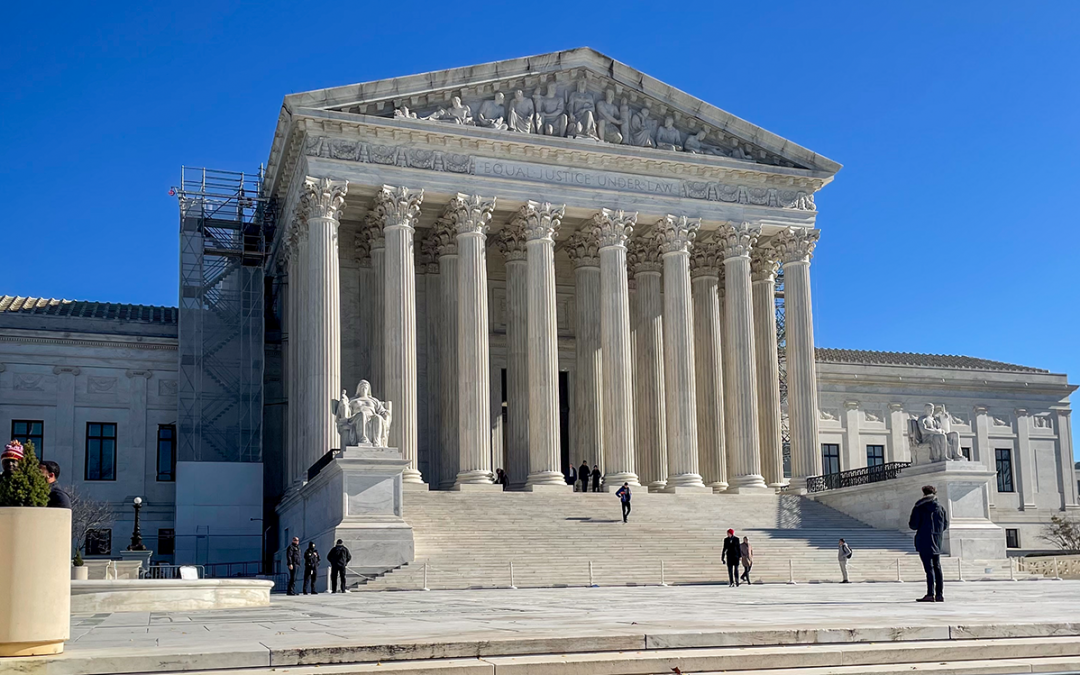WASHINGTON – The U.S. Supreme Court heard oral arguments Monday in a case that could significantly impact when federal courts can retain jurisdiction over cases after plaintiffs amend their complaints to remove federal claims, with major implications for businesses facing lawsuits in state courts.
At the core of Royal Canin U.S.A., Inc. V. Wullschleger is the question of whether federal courts should assess their jurisdiction at the time a case is removed from the state court or when plaintiffs amend their complaints. The Supreme Court’s ruling can affect future litigation strategies involving federal and state law claims drawing significant attention from business groups such as the U.S. Chamber of Commerce and 22 state governments, highlighting its importance to both corporate and state court systems.
The case began when two Missouri pet owners, Anastasia Wullschleger and Geraldine Brewer, filed a class action lawsuit against Royal Canin and Nestlé Purina, alleging deceptive practices over pet food prescriptions.
The companies removed the case to federal court due to “federal ingredients” in the claims, but the plaintiffs later amended the complaint to remove those references, seeking a return to state court where Missouri consumer protection laws apply.
The Eighth Circuit held that there was no valid federal question jurisdiction and rejected supplemental jurisdiction over state claims thus remanding the case to state court.
The petitioner argues that the plaintiff’s post-removal amendment, which removed federal claims from the complaint, does not divest the court’s jurisdiction. The supplemental jurisdiction statute allows the court to continue adjudicating state claims, even when federal claims are no longer present in the complaint.
They cited precedents such as St. Paul Mercury Indemnity. Co. v. Red Cab Co. and Carnegie Mellon University v. Cohill to support their case. “Your Honor, we think, if you were to rule for the other side, that would be upsetting a hundred years of precedent, every single court of appeals decisions,” argued Katherine B. Wellington, counsel on behalf of petitioners, in response to Justice Sonia Sotomayor. “That would be changing the rules.”
However, Robin Effron, civil procedure and litigation law scholar, said, “When you’re looking at the statutory text here, you get a different answer… It would put some precedent in a different light, but not overturn it.”
Justice Ketanji Brown Jackson also expressed skepticism. “So what I don’t understand is why the plaintiff has to be stuck with the jurisdictional consequences of claims they are no longer bringing? They’ve given up their ability to seek relief on the federal claims,” Jackson said.
The respondent contends that their amended complaint is a valid strategy that should allow the case to return to state court. Their legal team asserts that the removal of federal claims eliminates federal-question jurisdiction and that retaining the case in federal court would undermine the principles of federalism.
Further, they argue that a case originally filed in federal court must be dismissed when federal claims are dropped, the same should apply to removed cases. The respondents said they believe the text of Section 1367 should not be interpreted differently for original and removed cases and that the Supreme Court, as a supervisory body, should adhere to the statutory text, even if it contradicts lower court rulings.
While the case may have implications for businesses, mechanisms like the Class Action Fairness Act (CAFA) already exist to keep class actions in federal court. “CAFA is the main barrier for keeping class actions mainly in state court – CAFA is already there to get class actions into federal court,” said Effron.
Legal experts have raised concerns about potential inefficiencies if courts lose jurisdiction based on amendments.
“Jurisdictional issues could be put into pleadings or not at the whim of the parties,” said Scott Dodson, Director of the Center for Litigation and Courts, who filed an amicus brief. “That could result in inefficiency down the road, with cases having to be dismissed late in the game because there’s no longer jurisdiction.”
The case presents the justices with a complex decision that will balance the integrity of federalism, statutory text, and longstanding precedents.


